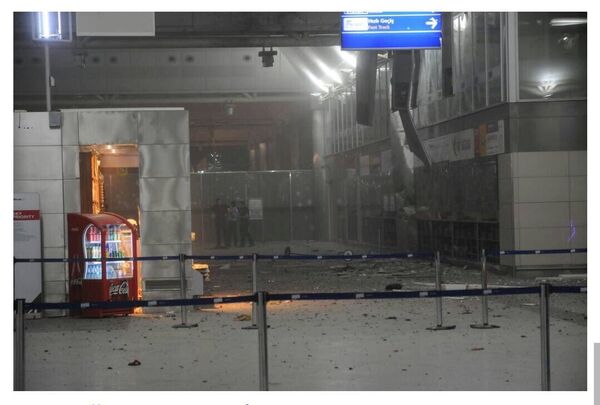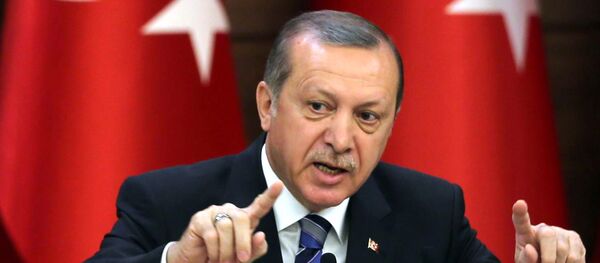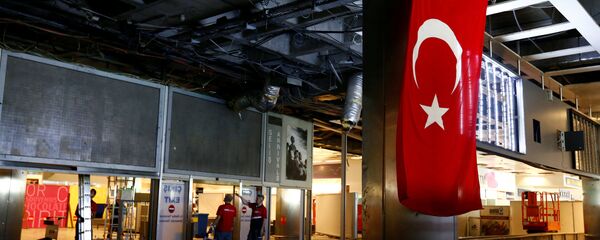"Turkey has recently made a series of major steps with regard to the Syrian crisis and anti-Daesh fight," he said, citing remarks of the country's new prime minister as an example. In May, Binali Yildirim said that Turkey wanted to have more friends and needed to reduce the number of its enemies.
Turkey's previous prime minister, Ahmet Davutoglu, has largely been viewed as the architect of Ankara's strategy on Syria that was focused on ousting al-Assad and helping Syrian rebels come to power. This approach seems to have been replaced by something completely different. President Recep Tayyip Erdogan has recently made overtures to Moscow and Tel Aviv.
"Pivot" to Russia
The suicide bombing, the first of its kind at a Turkish airport, took place on June 28, leaving 43 killed and more than 230 wounded. Although Daesh has not claimed responsibility for the assault, authorities and experts agree that indirect indicators suggest that the brutal group is behind it.
Al-Monitor's columnist Metin Gurcan suggested that Turkey's drastic foreign policy change could have been a major factor, echoing Professor Demir's assessment.
"This group's motive could have been to intimidate Ankara because of its Syrian policy choices and sharp U-turns in relations with Russia and Israel, sending Ankara the message: 'Watch out. If you push us, you will pay a high price,'" he said.

Daesh's "multilevel, hybrid, complex structure"
Both experts also pointed out that terrorist attacks in Turkey are increasingly carried out by local Daesh cells that "are not fully under the hierarchical command-control chain of IS," as Gurcan put it. Professor Demir described these individual groups as "more flexible."
In his opinion, Turkey and the rest of the world are not prepared to deal with this type of threat.
In this context, "we need to come up with a new anti-Daesh strategy," Professor Demir noted. The terrorist group "has a multilevel, hybrid structure that is more complex than that of al-Qaeda. It's therefore extremely hard to tackle these groups employing traditional methods that were efficient against al-Qaeda."
"New language, new vision and new approach"
"We need to understand how Daesh and similar terrorist organizations recruit young people," he said. We also need to find out "what role political and cultural factors, as well as religious education and social networks, play in this process."
Professor Demir maintained that "we need a new language, new vision and new approach" to tackling Daesh.




